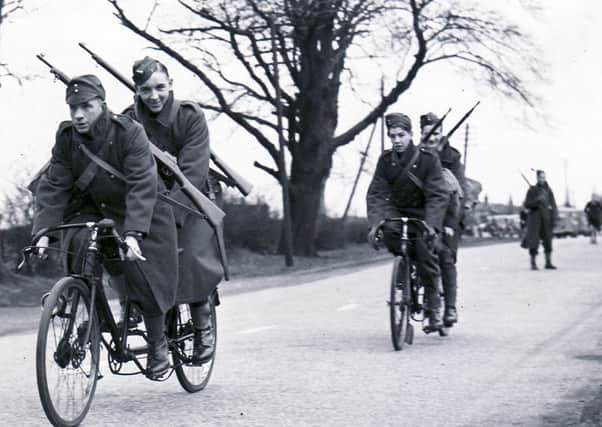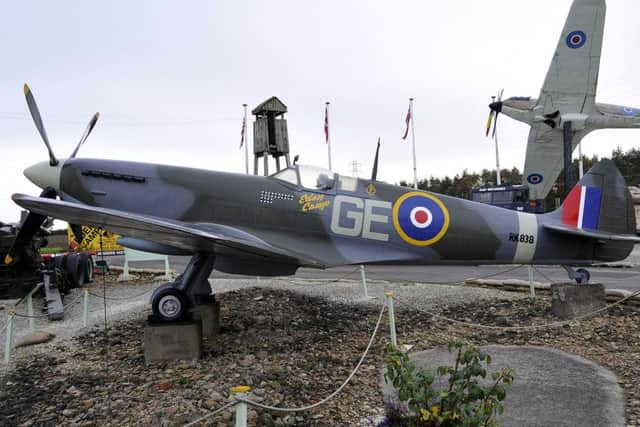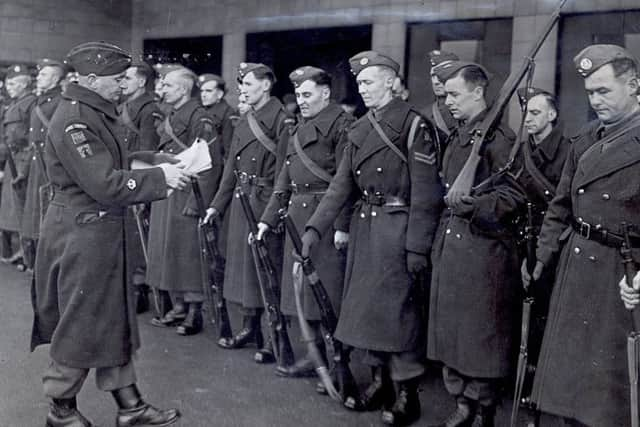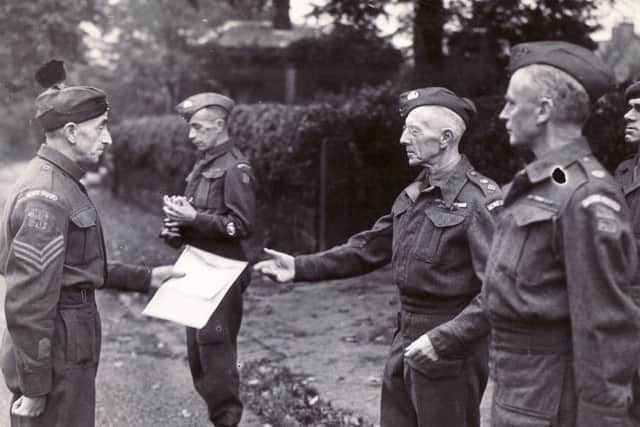How the real Dad's Army '˜would have put up one hell of a fight'


On the eve of the world premier of the big-screen remake of the hugely popular 1970s TV comedy Dad’s Army, Eden Camp near Malton in North Yorkshire is preparing to welcome a friendly invasion of visitors whose interest has been whetted by the antics of the Walmington-on-Sea Home Guard.
The new Dad’s Army film features some of the UK’s acting royalty, including Sir Michael Gambon as Private Godfrey, Sir Tom Courtenay as Lance-Corporal Jones, Bill Nighy as Sergeant Wilson and Toby Jones as Captain Mainwaring, and builds on the success of the TV series, which has seemingly been on a continuous broadcast spool since it was first aired in 1968.
Advertisement
Hide AdAdvertisement
Hide AdThe film was largely filmed in and around Bridlington and like the TV series lampoons the characters involved in the Home Guard, a national militia established in May 1940 when invasion by the Nazis was a very real threat for the people of Britain.


Dad’s Army was inspired by the experience of co-writer Jimmy Perry, who served in the Home Guard in Watford as a teenager, when he found himself training alongside men from a wide range of professional and vocational backgrounds.
“There is lots about Dad’s Army that’s historically accurate, and lots that’s not because at the end of the day it’s a comedy show,” said Nick Hill, the museum director at Eden Camp.
“It really was the case that bank managers, farmers, civil servants, butchers, war veterans, teachers and academics would get together in their local Home Guard because that was the nature of the organisation.
Advertisement
Hide AdAdvertisement
Hide Ad“It’s also true that, initially at least, they were very ill-equipped. For the first year or so their ‘uniform’ comprised a simple armband with LDV on it.”


The Local Defence Volunteers were established in May 1940 around the time of the ill-fated Dunkirk landings, when the Allied forces suffered a humiliating defeat on the coast of northern France and had to be rescued.
With the Nazis pressing home their advantage, the Government realised it needed to mobilise a part-time army from within the ranks of the men in reserved occupations if the British Expeditionary Force failed to meet its objectives.
With so much military hardware having been abandoned in Dunkirk, kitting out the LDV became a low priority and, as in the TV programme, many members were armed with makeshift weapons, including First World War guns and broom handles with carving knives strapped to them.
Advertisement
Hide AdAdvertisement
Hide AdThe amateur nature of the LDV quickly led to a sceptical public nicknaming them Look, Duck and Vanish, which prompted Sir Winston Churchill to rebrand them the Home Guard and incorporate them formally into the British Army in November 1940.


Involvement on voluntary basis until March 1942 when the Government made it compulsory for all men aged between 17 and 65, a move which quickly led to an increase in the quality of their armaments.
Mr Hill added: “In many ways it went full circle for the Home Guard, who ended up being better equipped than some of the front line forces.
“The standard issue Army rifle, for example, was the Lee Enfield 303 but the Home Guard were issued with Martini-Henry rifles, which were superior in many ways. They may not have been as robust as the Lee Enfield but the Martinis didn’t have to withstand the rigours of the battlefield.
Advertisement
Hide AdAdvertisement
Hide Ad“The Home Guard were also the first to get Tommy guns when they came in from America. The British military hierarchy didn’t like Tommy guns because they associated them with gangsters but they were a very effective weapon.”


In one of the most famous scenes from the Dad’s Army TV series, the most junior member of the Home Guard is seen perched atop stepladders brandishing a Tommy gun while guarding the crew of a captured German U-boat.
After mocking the Nazis with a song, the private is asked for his name by the U-boat commander, to go on a list of personnel to who will be “brought to account” when the Germans win the war, only for Captain Mainwaring to order “Don’t tell him Pike.”
The main role of the Home Guard was to delay an invading enemy until regular forces could be redeployed but the Government also hand-picked individuals from across the country to wage guerilla warfare on the Nazis in the event of Britain becoming occupied.
Advertisement
Hide AdAdvertisement
Hide AdThe forgotten story of the Home Guard’s elite division, the Auxiliary Territorial Unit is also told at Eden Camp, where visitors can see and handle hundreds of exhibits from the era.
“The Auxiliary Territorial Unit were as far removed from the Dad’s Army portrayal of the Home Guard as it is possible to get,” said Mr Hill. “They were Britain’s own secret army who were recruited with the aim of wreaking mayhem on the Germans in the event of an invasion.
“Hidden bunkers - some of which are only now being excavated - were dug at key locations that would allow people to disappear.


“The secret army came from all walks of life: the clergy, schoolteachers and councillors were recruited because they knew everyone in their community and would be aware who the likely fifth columnists might be; butchers and gamekeepers were recruited to help feed and supply the secret army.
Advertisement
Hide AdAdvertisement
Hide Ad“It’s a story that’s been largely forgotten and that’s why we wanted to tell it: from the first hand accounts of the men and boys involved we know it was amazing time in this nation’s history.
“The Germans may never have landed but I have no doubts that Dad’s Army would have put up one hell of a fight.”
Dad’s Army opens in cinemas on Friday week, February 5.
Eden Camp is open daily 10am to 5pm. For more details please click here